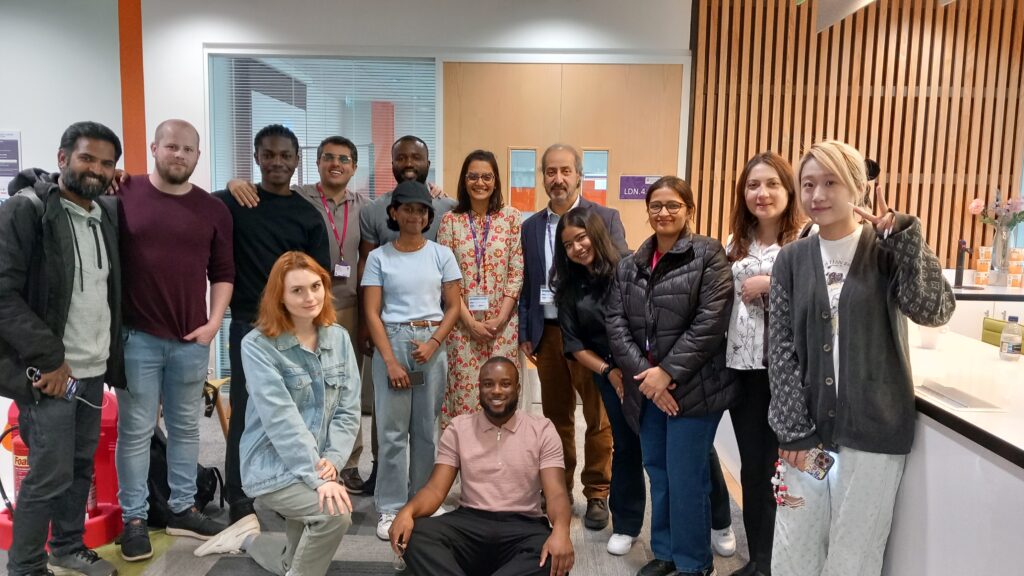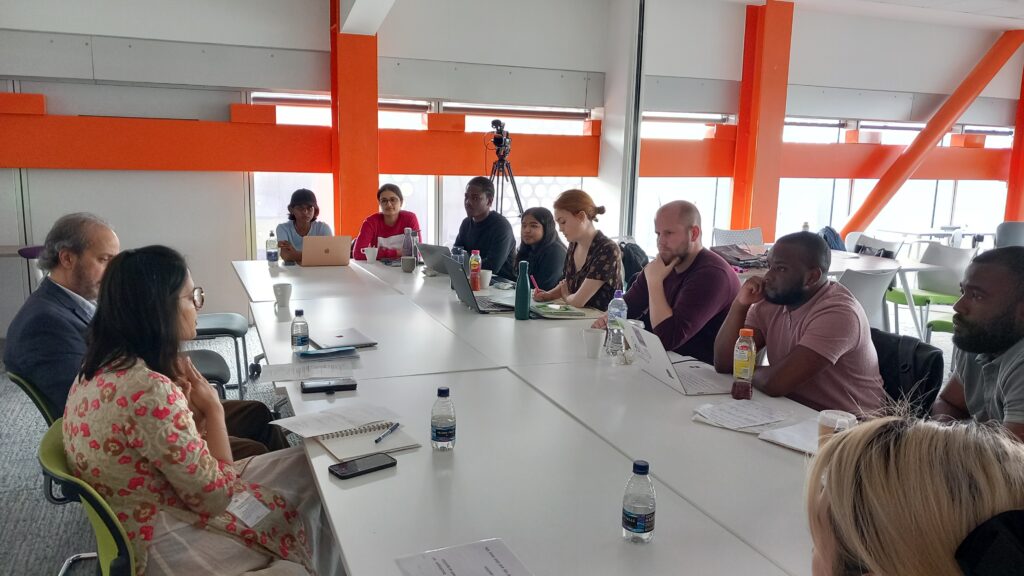The Hope of ‘the moment’: NGO’s and the ‘Local Turn’
By Postgraduate Student Ginerva Grant

‘They make a desolation and call it peace’
(Ali, Farewell, 1997, line 2)
On Thursday the 9th of May, peace-building practitioners Tahir Aziz, Senior Advisor at the London-based international peace-building NGO Conciliation Resources, and Ameya Kilara, Senior Projects Director at the conflict resolution NGO InterMediate, entered an open discussion with a group of postgraduate students at the MSc Security, Peace-building and Diplomacy and other programmes as part of the Peace-building course, at the Institute for Diplomacy and International Affairs (IDIA), Loughborough University London. The event was part of IDIG’s ‘Inside the Profession’ series, which aims to bring practitioners in the field of diplomacy and related subjects to engage with students through a thematic discussion, as well as sharing tips and reflections on professional development and career.
Drawing on their years of experience facilitating dialogue and collaboration across the contested ‘Line of Control’ in Kashmir, Tahir and Ameya, offered a roundtable reflecting on their respective NGO’s approaches and challenges and opportunities in the field. The focus was on their effort to connect with the ‘local’ on the ground: they reflected on the complex task of learning from local actors without preconceptions or assumptions, in their attempt to drive mediated outcomes in the Kashmir region.
The discussion covered broad concepts such as the timeline for implementation, the ‘emotional GDP’ of the local, and how and when results from these NGOs’ efforts can be measured.

Prior to the event, during a lecture on the theme of NGOs in Peace-building, and previously in the entire course, students had been entrenched in debates around several approaches to peace-building. The Western and until recently the dominant model of Liberal Peace-building, as well as the “local turn”-driven approaches, and the hybrid approach can all be critiqued for a variety of reasons, from the method of their engagement on both personal and structural levels, down to the merit of their results or even the ability to measure them.
Interestingly, in a previous session, former EU staffer Dr An Jacobs discussed her field experience when working for this Western Institution. It was interesting to draw parallels between the challenges our guests Tamin and Ameya had experienced in the field in Kashmir and the reflections we had heard from An at a previous session. While Conciliation Resources and InterMediate had strived for positionality beyond the Western approach to achieve a ’balance of perspectives’, sustained intervention within a conflict system saw both parties facing the challenges of fatigue, disappointment, missed opportunities, a lack of communication between outside actors, and divisions on withdrawal. Are these commonalities merely inherent issues of the practice? Are they solvable?
‘I hid my pain from myself; I revealed my pain only to myself.’
(Ali, Farewell, 1997, line 43)
It would seem, peace-building is a conflict of its own between methods and intentions. What way is best? Who should be involved? How can results be measured? When can we leave? As a voyeur and participant to both the NGO and the EU discussions, I found these questions to be evocative of the themes in both. NGO practitioners Tahir and Amara recognized that the best way to address this type of sustained intervention was through an adaptive approach that prioritised the voice of locals at a variety of levels, but that when trying to measure the impact of peace-building, the first thing that gets ‘colonised’ is your mind and ability to think about the future. Principally, it is crucial to remain optimistic as systemic resilience is crafted; big shifts are possible and each ‘moment’ that changes the lives of the local makes setting a time to leave difficult. While the Liberal approach engendered by the EU is more rigid and distanced, a stark difference in An’s experience of ‘leaving’ post-conflict reconstruction has remained seared in my mind. At the time of her leaving the Congo, one man had commented: ‘do you like what you’ve done to the place?’, raising the question of the tension inherent between those approving and those disapproving of the peace-builders’ impact.
What seems clear in peace-building is that although results are difficult to measure, and approaches vary, there is a necessity in showing up.
‘If only somehow you could have been mine
What would not have been possible in the world?’
(Ali, Farewell, 1997, lines 45-46)
*Kashmiri poet Agha Shahid Ali ‘Farewell’. From Agha Shahid Ali (1997) A Country Without A Post Office, New Delhi: Ravi Dayal Publisher
Written by Postgraduate Student Ginerva Grant
Loughborough University London
Blogging everything that’s happening at Loughborough University London